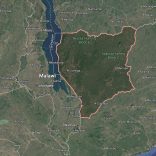Mozambique: 17 Malawians arrested over illegal stay, suspected illegal logging and gold mining
Hidden debts: Emopesca played no role in Ematum – AIM report

Photo: Noticias
Although the Mozambican state fishing company Emopesca in theory held a 33 per cent stake in Ematum (Mozambique Tuna Company), one of the three fraudulent companies, at the heart of the scandal of the “hidden debts”, in practice it played no role at all in Ematum’s affairs.
The former executive director of Emopesca, Armando Tchau, told the Maputo City Court on Thursday, the 43rd day of the trial of 19 people charged with crimes connected with the hidden debts, that Emopesca only became a founding shareholder in Ematum because it received “higher orders” to subscribe to the Ematum equity capital.
This subscription was purely theoretical. Emopesca had no money so it did not pay a penny towards its share in the Ematum capital. The cost of publishing the deed setting up Ematum in the official gazette, the “Boletim da Republica” was about 16,000 meticais (250 US dollars, at current exchange rates) and Emopesca could not pay that either.
Tchau said Emopesca played no role in the Ematum viability study, or in negotiating its loan (eventually for 800 million dollars) with the bank Credit Suisse, or the supply agreement with the Abu Dhabi based group Privinvest.
Although Emopesca nominally owned a third of Ematum, Tchau said he knew nothing of how the company operated and never set foot on any of its boats. Indeed, the first time he had ever heard the word Ematum was in late July 2013, when he and the Emopesca chairperson, the late Helder Pateguana, were told that Emopesca would be a shareholder in the new company. There was no discussion about this order.
Emopesca itself was in a disastrous state, and all the talk about “relaunching” this company came to nothing. Igepe (Institute for the Management of State Holdings) owned 80 per cent of Emopesca and the government’s Fisheries Promotion Fund (FFP) owned the other 20 per cent. But neither was prepared to put any money into Emopesca.
“The shareholders never developed any activities to relaunch Emopesca”, lamented Tchau.
He told Prosecutor Sheila Marrengula that he did not know whether Ematum ever generated any revenue, and had no idea about the viability of industrial fishing for tuna in Mozambican waters.











Leave a Reply
Be the First to Comment!
You must be logged in to post a comment.
You must be logged in to post a comment.